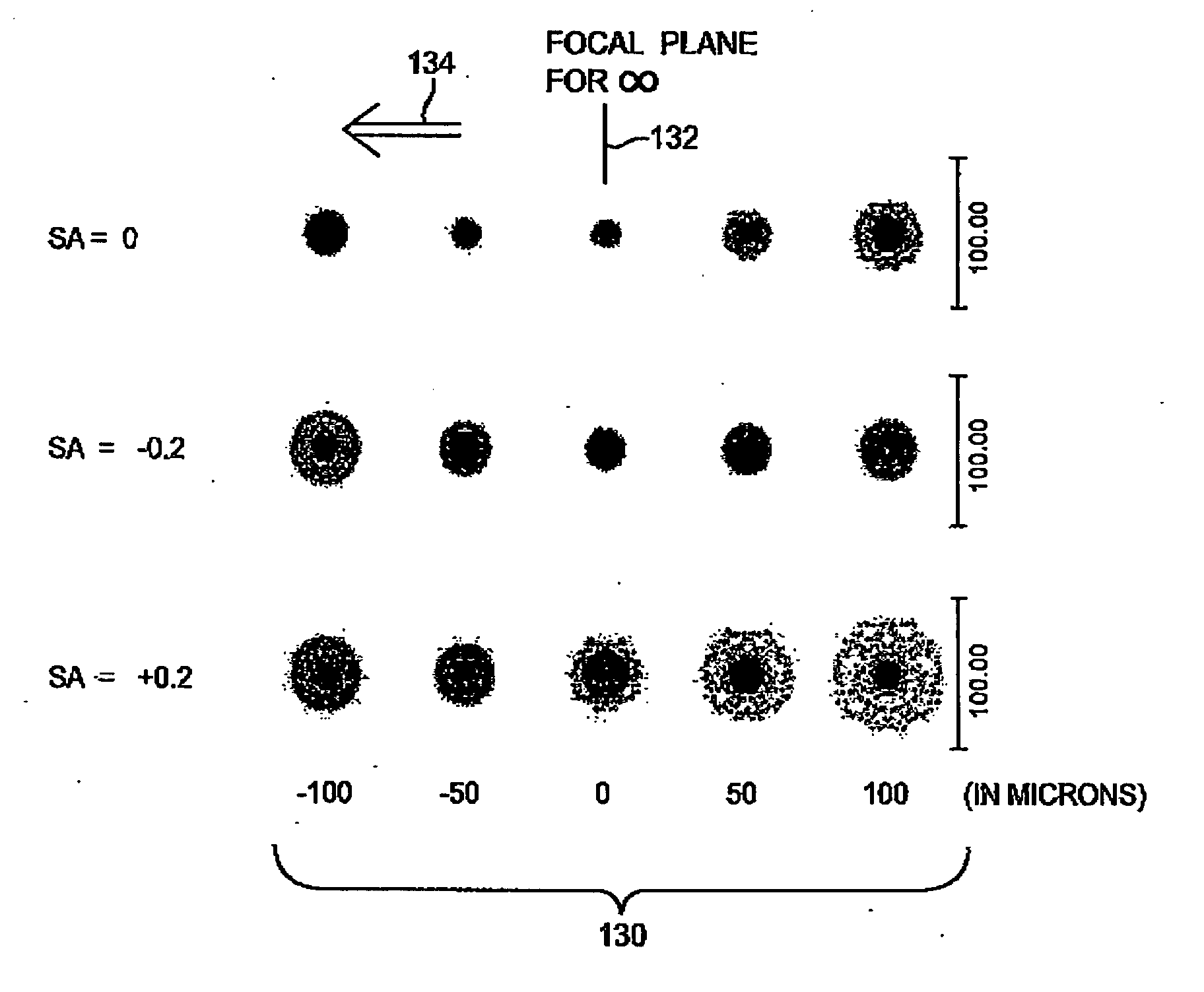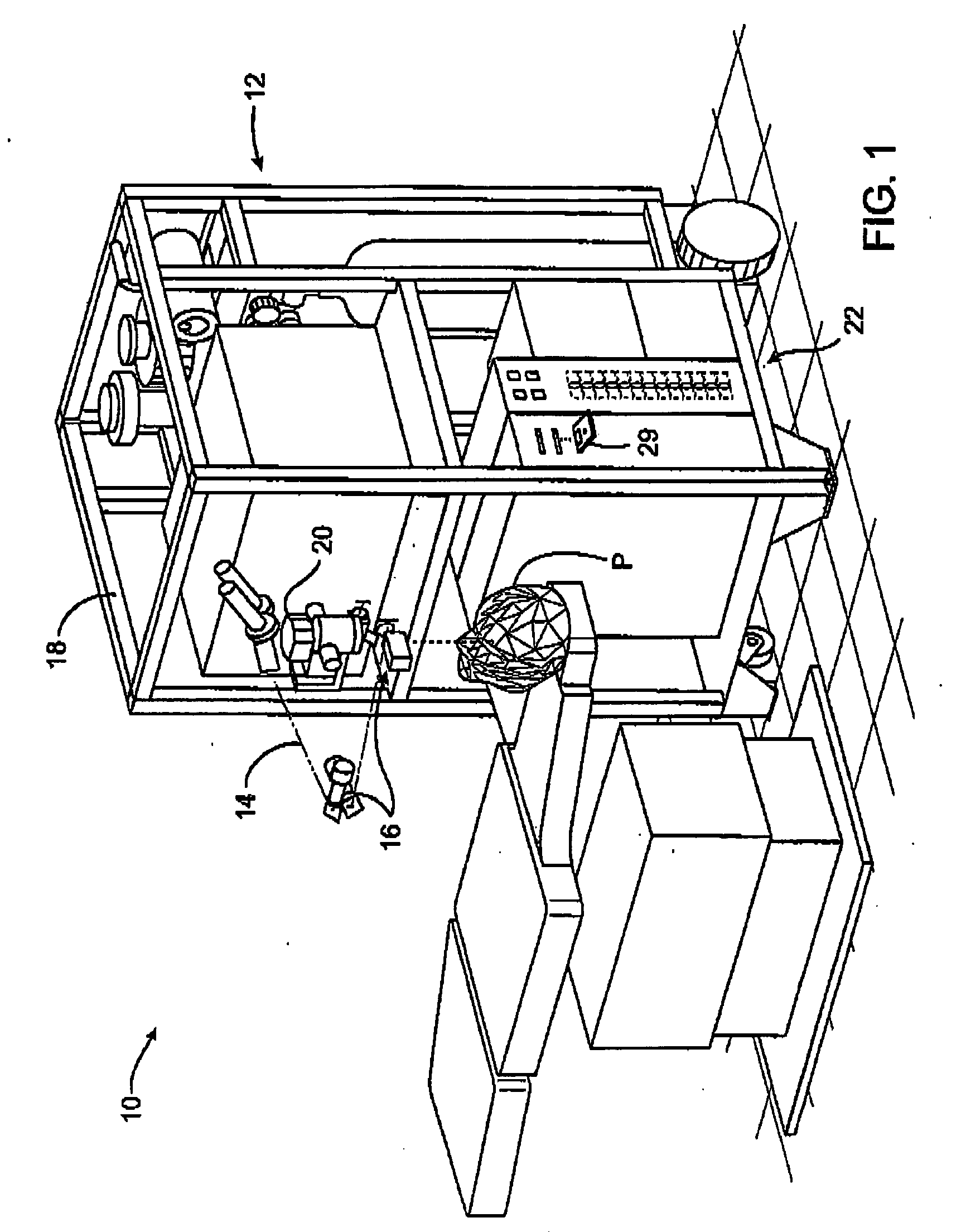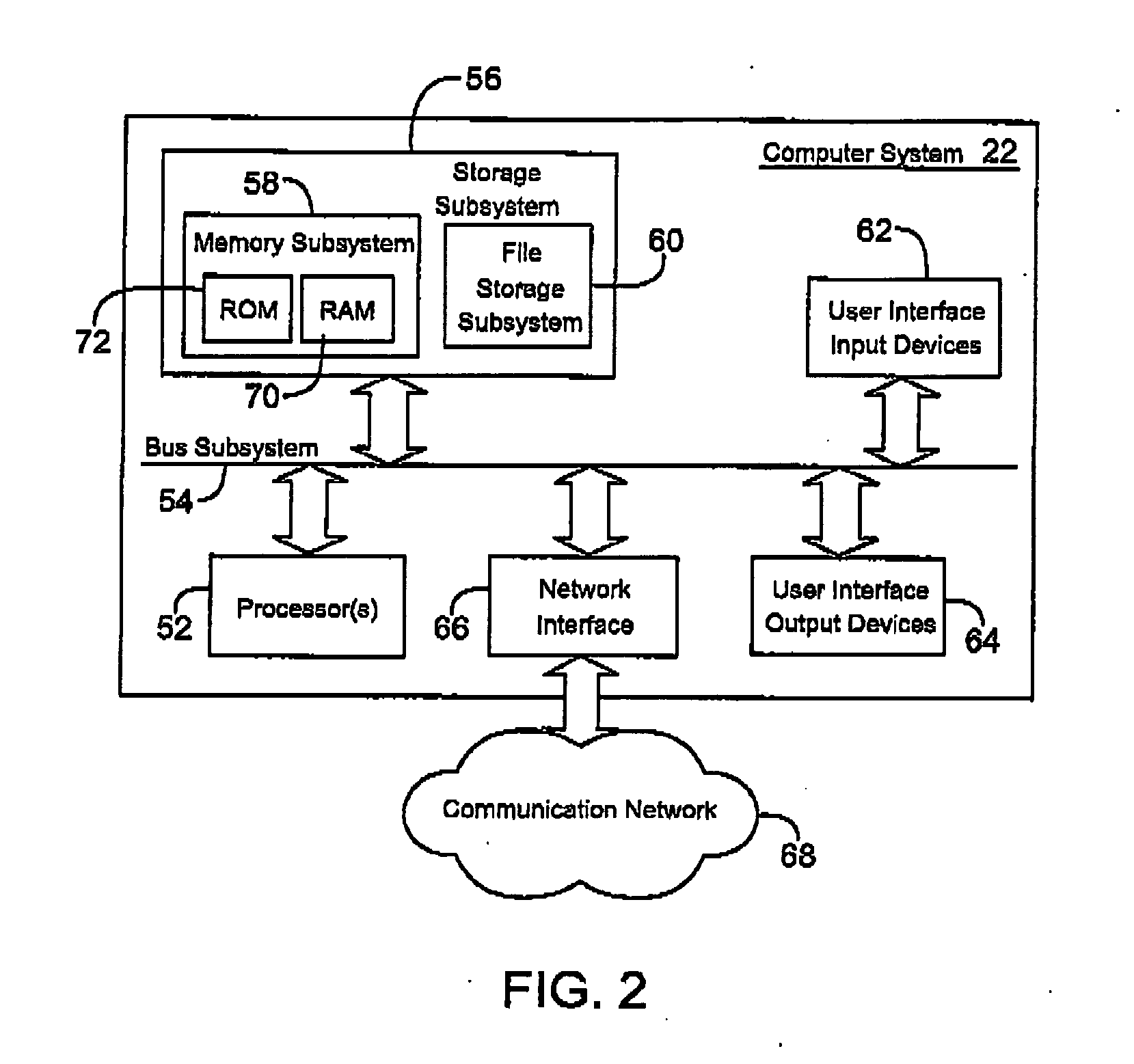Presbyopia correction through negative high-order spherical aberration
a spherical aberration, negative technology, applied in the field of optic correction, can solve the problems of crystalline lenses that have lost almost all elastic properties, the ability of presbyopian eyes to quickly and easily refocus on objects, and the inability to focus on objects at near distances
- Summary
- Abstract
- Description
- Claims
- Application Information
AI Technical Summary
Benefits of technology
Problems solved by technology
Method used
Image
Examples
Embodiment Construction
[0030] The present invention generally provides devices, systems, and methods for treating (and / or planning treatments for) one or both eyes of a patient. The invention provides customized or general presbyopia-mitigating shapes, and embodiments of the present invention can be readily adapted for use with existing laser systems, wavefront measurement systems, and other optical measurement and refractive correction devices, systems, and techniques. While the systems, software, and methods of the present invention are described primarily in the context of a laser eye surgery system, it should be understood the present invention may be adapted for use in alternative eye treatment devices, procedures, and systems such as spectacle lenses, intraocular lenses, contact lenses, corneal ring implants, collagenous corneal tissue thermal remodeling, and the like.
[0031] Referring now to FIG. 1, a laser eye surgery system 10 includes a laser 12 that produces a laser beam 14. Laser 12 is optical...
PUM
 Login to View More
Login to View More Abstract
Description
Claims
Application Information
 Login to View More
Login to View More - R&D
- Intellectual Property
- Life Sciences
- Materials
- Tech Scout
- Unparalleled Data Quality
- Higher Quality Content
- 60% Fewer Hallucinations
Browse by: Latest US Patents, China's latest patents, Technical Efficacy Thesaurus, Application Domain, Technology Topic, Popular Technical Reports.
© 2025 PatSnap. All rights reserved.Legal|Privacy policy|Modern Slavery Act Transparency Statement|Sitemap|About US| Contact US: help@patsnap.com



